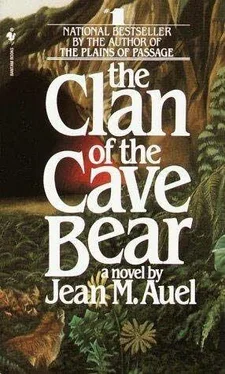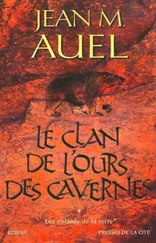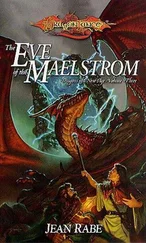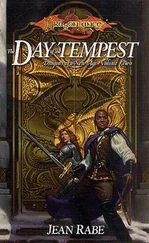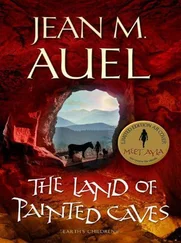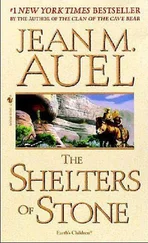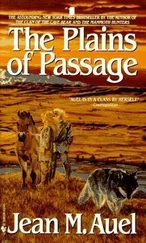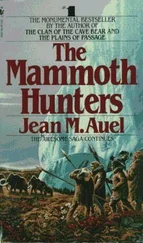They broke camp quickly. Iza, loaded with her basket and bundles, reached down to hoist the girl up to her hip and fell in behind Brun and Grod. Riding on the woman’s hip, the little girl looked around her with curiosity while they traveled, watching everything Iza and the other women did. She was particularly interested whenever they stopped to gather food. Iza often gave her a bite of a fresh bud or tender young shoot, and it brought a vague recollection of another woman who had done the same thing. But now, the girl paid closer attention to the plants and began to notice identifying characteristics. Her days of hunger aroused in the young child a keen desire to learn how to find food. She pointed to a plant and was pleased when the woman stopped and dug up its root. Iza was pleased, too. The child is quick, she thought. She couldn’t have known it before or she would have eaten it.
They stopped for a rest near midday while Brun looked over a possible cave site, and after giving the youngster the last of the broth from the water skin, Iza handed her a strip of hard dry meat to chew. The cave was not adequate for their needs. Later in the afternoon, the girl’s leg began to throb as the effects of the willow bark wore off. She squirmed restlessly. Iza patted her and shifted her weight to a more comfortable position. The girl gave herself over completely to the woman’s care. With total trust and confidence, she wrapped skinny arms around Iza’s neck and rested her head on the woman’s broad shoulder. The medicine woman, childless for so long, felt a surge of inner warmth for the orphaned girl. She was still weak and tired, and lulled by the rhythmic motion as the woman walked, she fell asleep.
By the time evening approached, Iza was feeling the strain of the additional burden she carried and was grateful to let the child down when Brun called a halt for the day. The girl was feverish, her cheeks flushed and hot, her eyes glazed, and while the woman looked for wood, she also looked for plants to treat the child again. Iza didn’t know what caused infection, but she did know how to treat it, and many other ailments as well.
Though healing was magic and couched in terms of spirits, it didn’t make Iza’s medicine less effective. The ancient Clan had always lived by hunting and gathering, and generations of using wild plantlife had, by experiment or accident, built up a store of information about it. Animals were skinned and butchered and their organs observed and compared. The women dissected while preparing dinner and applied the knowledge to themselves.
Her mother had shown Iza the various internal parts and explained their functions as part of her training, but it was only to remind her of something she already knew. Iza was born to a highly respected line of medicine women and, through a means more mysterious than training, knowledge of healing was passed on to a medicine woman’s daughters. A fledgling medicine woman of an illustrious line had a higher rank than an experienced one of mediocre antecedents-with good reason.
Stored in her brain at birth was the knowledge acquired by her ancestors, the ancient line of medicine women of which Iza was a direct descendant. She could remember what they knew. It was not much different from recalling her own experience; and once stimulated, the process was automatic. She knew her own memories primarily because she could also remember the circumstances associated with them-she never forgot anything-and she could only recall the knowledge in her memory bank, not how it was learned. And although Iza and her siblings had the same parents, neither Creb nor Brun had her medical knowledge.
Memories in Clan people were sex differentiated. Women had no more need of hunting lore than men had of more than rudimentary knowledge of plants. The difference in the brains of men and women was imposed by nature, and only cemented by culture. It was another of nature’s attempts to limit the size of their brains in an effort to prolong the race. Any child with knowledge rightfully belonging to the opposite gender at birth lost it through lack of stimulation by the time adult status was reached.
But nature’s attempt to save the race from extinction carried with it the elements to defeat its own purpose. Not only were both sexes essential for procreation, but for day to day living; one could not survive for long without the other. And they could not learn each other’s skills, they hadn’t the memories for it.
But the eyes and brain of people of the Clan had also endowed both genders with acute and perceptive vision, though it was used in different ways. The terrain had been changing gradually as they traveled, and, unconsciously, Iza recorded each detail of the landscape they passed through, noting especially the vegetation. She could discern minor variations in the shape of a leaf or the height of a stalk from a great distance, and though there were some plants, a few flowers, an occasional tree or shrub she had never seen before, they were not unfamiliar. From a recess deep in the back of her large brain she found a memory of them, a memory not her own. But even with that tremendous reservoir of information at her disposal, she had recently seen some vegetation that was completely unfamiliar, as unfamiliar as the countryside. She would have liked to examine it more closely. All women were curious about unknown plantlife. Though it meant acquiring new knowledge, it was essential to immediate survival.
Part of every woman’s heredity was the knowledge of how to test unfamiliar vegetation, and like the rest, Iza experimented on herself. Similarities to known plants placed new ones in relative categories, but she knew the dangers of assuming similar characteristics meant identical properties. The procedure for testing was simple. She took a small bite. If the taste was unpleasant, she spit it out immediately. If it was agreeable, she held the tiny portion in her mouth, carefully noting any tingling or burning sensations or any changes in taste. If there were none, she swallowed it and waited to see if she could detect any effects. The following day, she took a larger bite and went through the same procedure. If no ill effects were noticed after a third trial, the new food was considered edible, in small portions at first. But Iza was often more interested when there were noticeable effects, for that indicated a possibility of a medicinal use. The other women brought anything unusual to her when they applied the same test for edibility or anything that had characteristics similar to plants known to be poisonous or toxic. Proceeding with caution, she experimented with these too, using her own methods. But such experimentation took time, and she stayed with plants she knew while they traveled.
Near this campsite, Iza found several tall, wandlike, slim-stemmed hollyhocks with large bright flowers. The roots of the multicolored flowering plants could be made into a poultice similar to iris roots to promote healing and reduce swelling and inflammation. An infusion of the flowers would both numb the child’s pain and make her sleepy. She collected them along with her wood.
After the evening meal, the little girl sat propped up against a large rock watching the activities of the people around her. Food and a fresh dressing had refreshed her and she jabbered at Iza, though she could tell the woman didn’t understand her. Other clan members glanced disapprovingly in her direction, but the child was unaware of the meaning of the looks. Their underdeveloped vocal organs made precise articulation impossible for people of the Clan. The few sounds they used as emphasis had evolved from cries of warning or a need to gain attention, and the importance attached to verbalizations was a part of their traditions. Their primary means of communication- hand signals, gestures, positions; and an intuition born of intimate contact, established customs, and perceptive discernment of expressions and postures-were expressive, but limited. Specific objects seen by one were difficult to describe to others, and abstract concepts even more so. The child’s volubility perplexed the clan and made them distrustful.
Читать дальше
